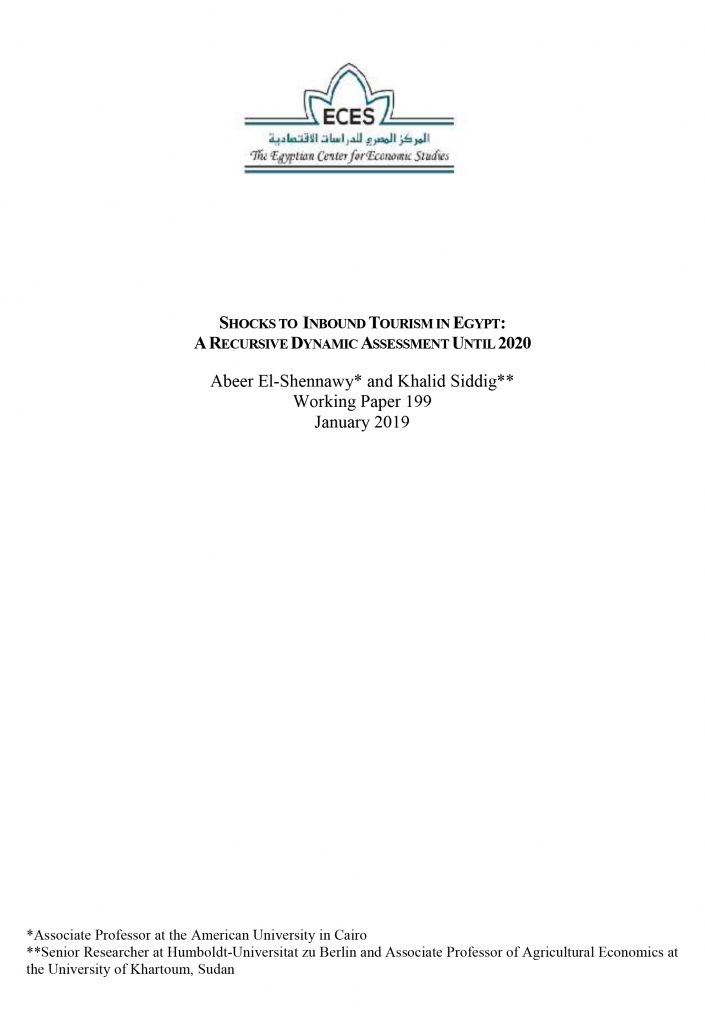Following the January 2011 Revolution, Egypt has experienced increasing political instability. It has also been the target of intense terrorist attacks as the ousting of the first democratically elected Muslim Brotherhood president Mohamed Morsi in June 30, 2013 due to popular discontent with his policies, arousing rage among his followers. While substantial efforts are exerted by the current regime to put an end to these terrorist attacks, it is not clear whether the country’s reputation as a safe tourist destination will be restored in the medium run. Utilizing a Recursive Dynamic General Equilibrium Model, this paper assesses the extent of vulnerability of the Egyptian economy to a prolonged tourism shock. Simulation results reveal that a shock to tourism has a significant impact on the Egyptian economy as a rebound of inbound tourism increases both GDP and welfare substantially. Based on these results, it pays to put in place measures to moderate the effect of this shock.

Shocks to Inbound Tourism in Egypt: A Recursive Dynamic Assessment Until 2020
16-01-2019
Author(s): Abeer El-Shennawy, Associate Professor at the American University in Cairo; Khalid Siddig, Senior Researcher at Humboldt-Universitat zu Berlin and Associate Professor of Agricultural Economics at the University of Khartoum, Sudan
Publication Number: ECES-WP199-E
